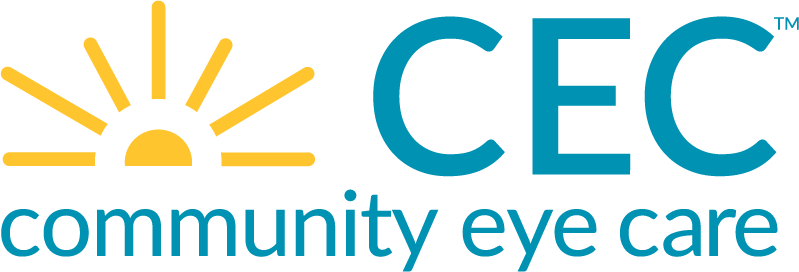
Embracing the Sun Safely
As we bask in the warmth and brightness of summer, it’s essential to remember the hidden dangers of ultraviolet (UV) rays. While the sun is our life-giving star, its rays can pose significant risks to our health, including our eyes. Discover the importance of UV awareness and learn about some crucial UV safety tips to protect our vision and enjoy the sunshine safely!
What Are UV Rays?
Understanding the Invisible Spectrum
UV rays, or ultraviolet rays, are a form of electromagnetic radiation that comes from the sun. These rays are invisible to the naked eye and exist just beyond the violet end of the visible light spectrum. There are three types of UV rays: UVA, UVB, and UVC.
- UVA Rays: These rays have the longest wavelength and can penetrate deep into the skin, causing aging and long-term skin damage. They also play a role in eye damage.
- UVB Rays: UVB rays have a shorter wavelength and are primarily responsible for causing sunburn. They can damage the outer layers of the skin and the eyes’ surface.
- UVC Rays: Fortunately, UVC rays are absorbed by the Earth’s atmosphere and don’t reach the ground. However, they can be dangerous in artificial sources like welding torches and certain types of lamps.
UV Rays and Daily Exposure
It’s important to note that UV rays are present every day, regardless of the weather. Even on cloudy or winter days, UV radiation can reach your eyes and skin. Reflective surfaces like water, snow, and sand can intensify UV exposure, making it crucial to protect yourself year-round.
Why UV Rays Are Dangerous
UV rays are a significant concern because they can cause immediate and long-term damage to both the skin and eyes. The effects of UV radiation are cumulative, meaning the more exposure you get over your lifetime, the greater the risk of developing serious health issues.
Skin Damage
Prolonged exposure to UV radiation can lead to skin damage, ranging from sunburns to premature aging and even skin cancer. The skin’s response to UV exposure is to produce more melanin, which results in tanning. However, tanning is a sign of skin damage. Repeated exposure increases the risk of more severe outcomes, such as melanoma.
Eye Damage
Our eyes are highly sensitive to UV radiation. Unlike the skin, which can show immediate signs of damage like redness or burns, the eyes may not reveal the harm done until much later. UV exposure can contribute to various eye conditions that can impair vision or even lead to blindness.
The Risks of UV Exposure for Your Eyes
Short-Term and Long-Term Effects
When it comes to your eyes, UV exposure can cause both short-term discomfort and long-term health issues.
- Photokeratitis: Often referred to as “sunburn of the eye,” photokeratitis is a painful condition resulting from intense UV exposure. Symptoms include red eyes, a gritty feeling, sensitivity to light, and tearing. This condition is usually temporary but highly uncomfortable.
- Cataracts: Long-term exposure to UV rays increases the risk of developing cataracts, which is a clouding of the eye’s natural lens. Cataracts can lead to blurry vision and, if left untreated, can cause blindness.
- Macular Degeneration: UV exposure is also linked to macular degeneration, a condition that damages the central part of the retina (the macula), leading to loss of central vision. This condition is a leading cause of vision loss in older adults.
- Pterygium: This is a growth of tissue on the white part of the eye that can extend to the cornea, potentially affecting vision. It’s often linked to prolonged UV exposure.
- Skin Cancer Around the Eyes: The skin around your eyes, including the eyelids, is very sensitive and susceptible to UV damage. This area can develop skin cancers like basal cell carcinoma, squamous cell carcinoma, and melanoma.
UV Eye Safety Tips
Protecting Your Vision
Now that we understand the dangers of UV rays, let’s look at some effective strategies to protect our eyes.
- Wear UV-Blocking Sunglasses: Not all sunglasses are created equal. When choosing sunglasses, ensure they block 100% of UVA and UVB rays. Wraparound styles can provide added protection by blocking rays from the side.
- Use Hats and Visors: Wide-brimmed hats or visors can significantly reduce the amount of UV radiation reaching your eyes. They are a great accessory to complement your sunglasses.
- Seek Shade: Whenever possible, stay in the shade, especially during peak sunlight hours (10 a.m. to 4 p.m.). This can reduce your overall UV exposure.
- Avoid Tanning Beds: Tanning beds are a source of artificial UV radiation and can be harmful to your eyes and skin. Opt for safer alternatives like self-tanning lotions or sprays.
- Be Cautious Near Reflective Surfaces: Water, snow, sand, and concrete can reflect UV rays and increase exposure. Take extra precautions in these environments by wearing appropriate eye protection.
- Educate and Protect Children: Children’s eyes are more sensitive to UV rays, and they tend to spend more time outdoors. Ensure they wear UV-blocking sunglasses and hats to protect their developing eyes.
- Use UV-Blocking Contact Lenses: If you wear contact lenses, consider those that offer UV protection. However, remember that they do not cover the entire eye, so wearing sunglasses is still necessary.
- Regular Eye Exams: Schedule regular eye exams with your optometrist. They can detect early signs of UV damage and provide recommendations for protecting your eyes.
As we celebrate UV Awareness Month, let’s commit to protecting our eyes from the harmful effects of UV rays. By understanding what UV rays are, recognizing their dangers, and taking proactive steps to safeguard our vision, we can enjoy the sun safely. Remember, protecting your eyes today ensures a clearer, healthier future. So, make an appointment for your annual eye exam and use your CEC benefits to pick up a pair of prescription or non-prescription UV-blocking sunglasses, and step out with confidence, knowing you’re taking the right steps to protect your vision.
Information received through CEC vision care channels is for informational purposes only and does not constitute medical advice, medical recommendations, diagnosis, or treatment. Always seek the advice of your eye doctor, physician, or another qualified health provider with any questions you may have regarding a medical condition.
CEC is a wholly-owned subsidiary of VSP Vision.
Sources: American Optometric Association (AOA), American Academy of Ophthalmology (AAO), The Vision Council (TVC), National Eye Institute (NEI), and Centers for Disease Control and Prevention (CDC).
Back to All

